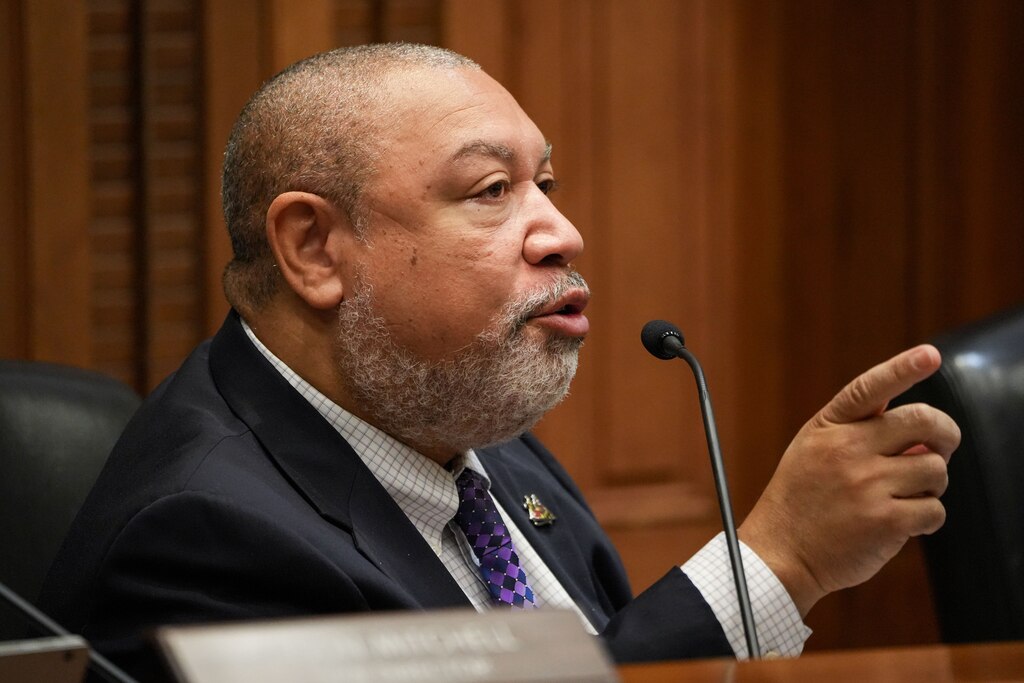City Council President Nick Mosby wants voters to decide if the mayor’s grip on Baltimore’s powerful spending board should be reduced.
The Democrat introduced a charter amendment to remove two mayoral appointees to the Board of Estimates, which would give the mayor, City Council president and comptroller — three citywide elected positions — equal control.
Mosby introduced the amendment one day after losing the Democratic primary to Councilman Zeke Cohen. He declined an interview about the amendment.
Mayor Brandon Scott and Comptroller Bill Henry won their primaries last month, paving a path to easy victory in November. They serve on the board alongside City Solicitor Ebony Thompson and Department of Public Works Director Khalil Zaied, two Scott appointees who vote in step with the mayor.
The spending board is a hallmark of Baltimore’s strong-mayor system, a top-heavy system of governance that gives the mayor the bulk of City Hall’s authority, particularly when it comes to financial decisions. The Board of Estimates oversees nonroutine spending, from construction contracts to employee travel reimbursement.
Scott became City Council president in 2019, as part of a game of political musical chairs triggered by the resignation of former Mayor Catherine Pugh amid a corruption scandal.
In January 2020, Scott introduced a charter amendment similar to Mosby’s that aimed to remove the mayoral appointees from the board, saying the change would give equal weight to officials chosen by voters. The bill was among proposals Scott, Henry and other members of the council’s progressive wing introduced as part of “good governance” legislation with the aim of reducing corruption, but never moved forward.
On Wednesday, the mayor was far less enthusiastic.
“I think what we have to be very mindful of,” he said at a news conference, “is that we also know we can’t look at charter amendments as a one-off.”
He alluded to David Smith, the executive chairman of Sinclair who funded a successful charter amendment in 2022 to set term limits and a proposed 2024 charter amendment to reduce the size of the council. Such measures are “very dangerous in the way of reducing Black political power,” he said.
That is not Mosby’s intent, Scott added, but “that’s always going to be a chief concern for us.”

Henry said a proposal to reshape the spending board has been introduced and discussed every term he’s served since 2007.
“I think it is time to stop talking about it and do it,” he said in an email.
He then copied and pasted three direct quotes that Scott released alongside his 2020 proposal, including: “The public has entrusted us to do the work of cleaning up city government so that we have a governmental structure that is less prone to corruption, more efficient, and more supportive of our local communities.”
The council and mayor must sign off on the charter amendment by July 29 in order for the question to appear on city ballots in November. It would become law if a majority of voters approve. Should the mayor veto the charter amendment, the council can override his decision with a three-quarters majority.




Comments
Welcome to The Banner's subscriber-only commenting community. Please review our community guidelines.